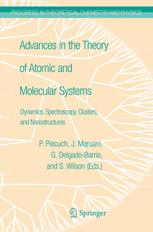

Most ebook files are in PDF format, so you can easily read them using various software such as Foxit Reader or directly on the Google Chrome browser.
Some ebook files are released by publishers in other formats such as .awz, .mobi, .epub, .fb2, etc. You may need to install specific software to read these formats on mobile/PC, such as Calibre.
Please read the tutorial at this link: https://ebookbell.com/faq
We offer FREE conversion to the popular formats you request; however, this may take some time. Therefore, right after payment, please email us, and we will try to provide the service as quickly as possible.
For some exceptional file formats or broken links (if any), please refrain from opening any disputes. Instead, email us first, and we will try to assist within a maximum of 6 hours.
EbookBell Team

5.0
68 reviewsQuantum mechanics is the fundamental theory of matter on the microscopic scale. Thanks to conceptual advances and progress in computer technology, its application to the study of atomic and molecular systems, which is of relevance to chemistry, physics, biology, and materials science, is a rapidly developing research area. Advances in the Theory of Atomic and Molecular Systems is a two-volume collection of 33 papers that define its leading edge: they present recent theoretical and computational developments that provide new insights into the structure, properties, and behavior of a variety of atomic and molecular systems. These papers are a selection of some of the most out-standing presentations made at the 13th International Workshop on Quantum Systems in Chemistry and Physics (QSCP-XIII), held at Lansing, Michigan, USA, in July 2008. Since the QSCP-XIII workshop was coordinated with the 6th Congress of the International Society for Theoretical Chemical Physics (ISTCP-VI) held at Vancouver, British Columbia, Canada, in July 2008 as well, three of the 33 papers included in the present two volumes have been written by ISTCP-VI participants.
The first volume, with the subtitle Conceptual and Computational Advances in Quantum Chemistry, contains 20 papers divided into six parts. The first part focuses on historical overviews. The remaining five parts, entitled "High-Precision Quantum Chemistry", "Beyond Nonrelativistic Theory: Relativity and QED", "Advances in Wave Function Methods", "Advances in Density Functional Theory", and "Advances in Concepts and Models", focus on electronic structure theory and its foundations. The second volume, with the subtitle Dynamics, Spectroscopy, Clusters, and Nanostructures, contains 13 papers divided into three parts: "Quantum Dynamics and Spectroscopy", "Complexes and Clusters", and "Nanostructures and Complex Systems".
These two volumes together are an invaluable resource to faculty, graduate students, and researchers interested in theoretical and computational chemistry and physics, physical chemistry and chemical physics, molecular spectroscopy, and related areas of science and engineering.